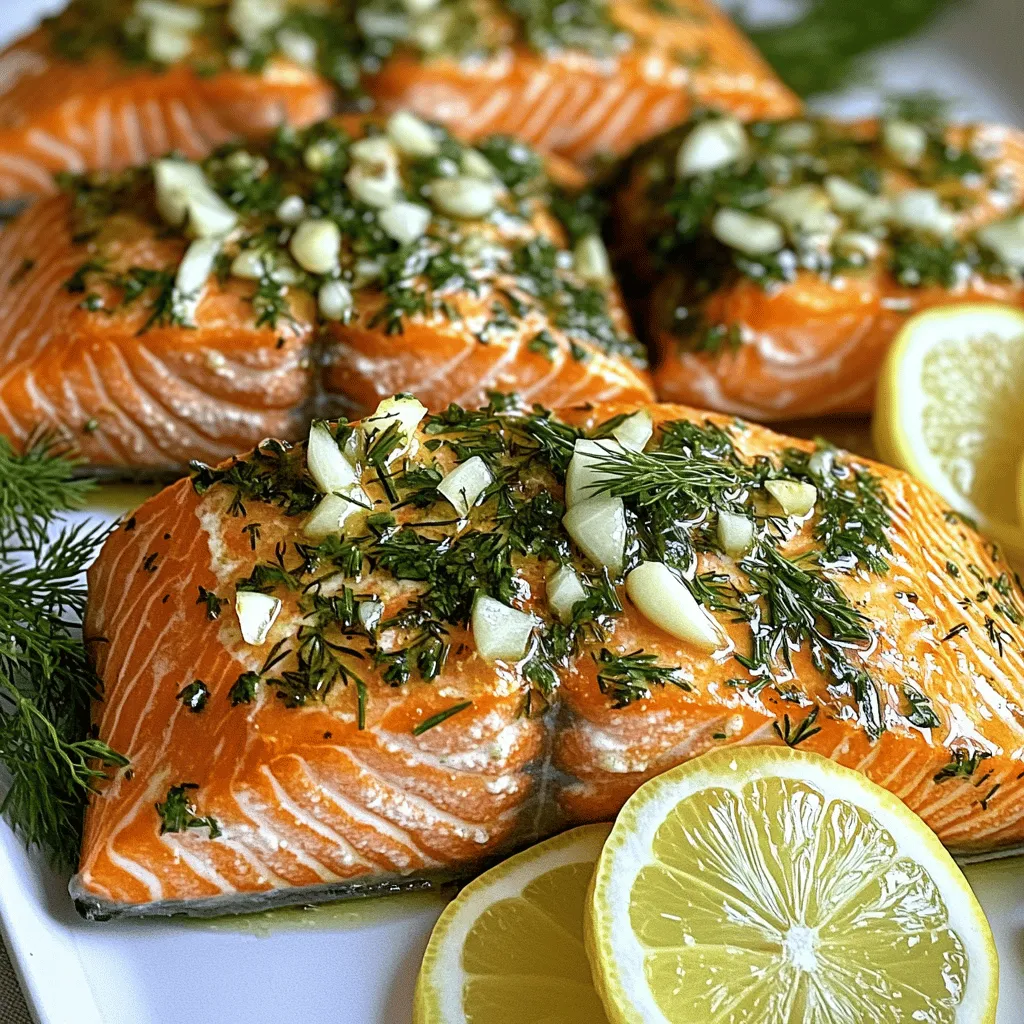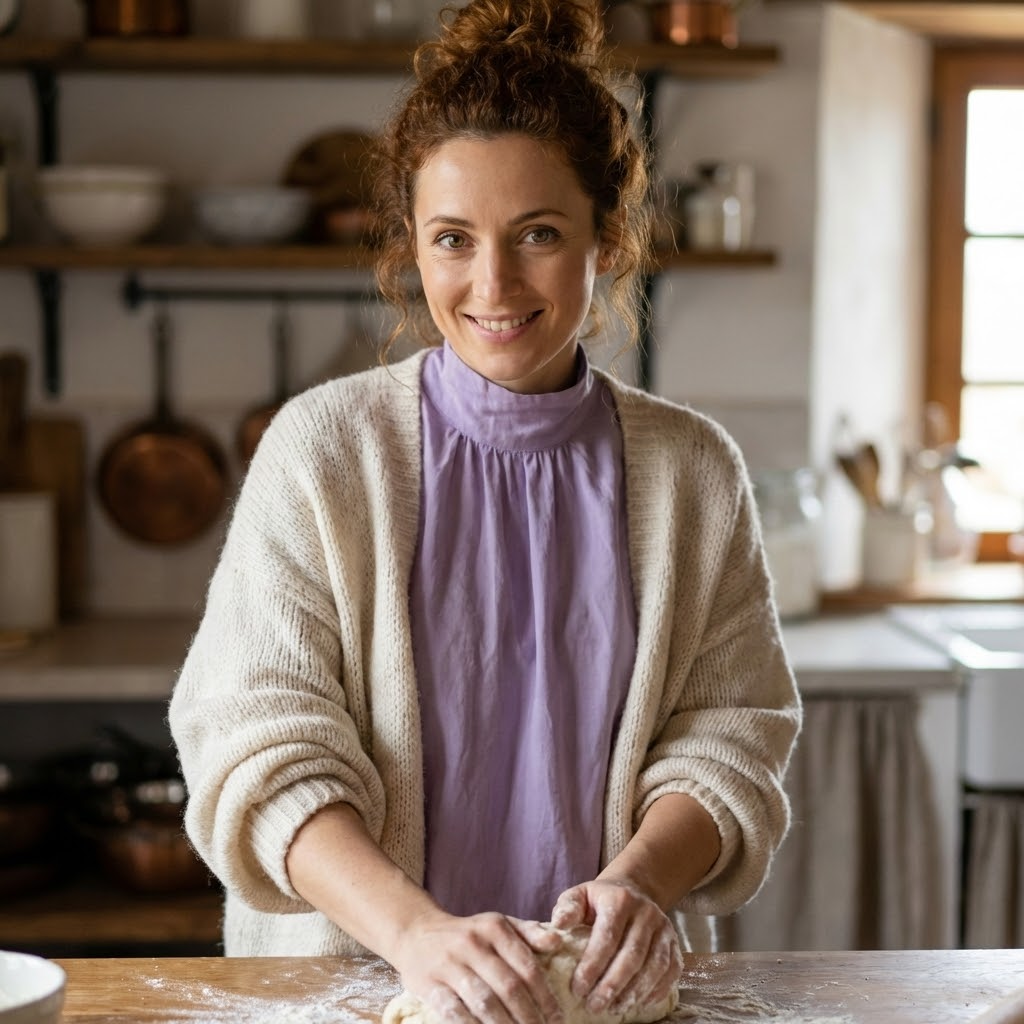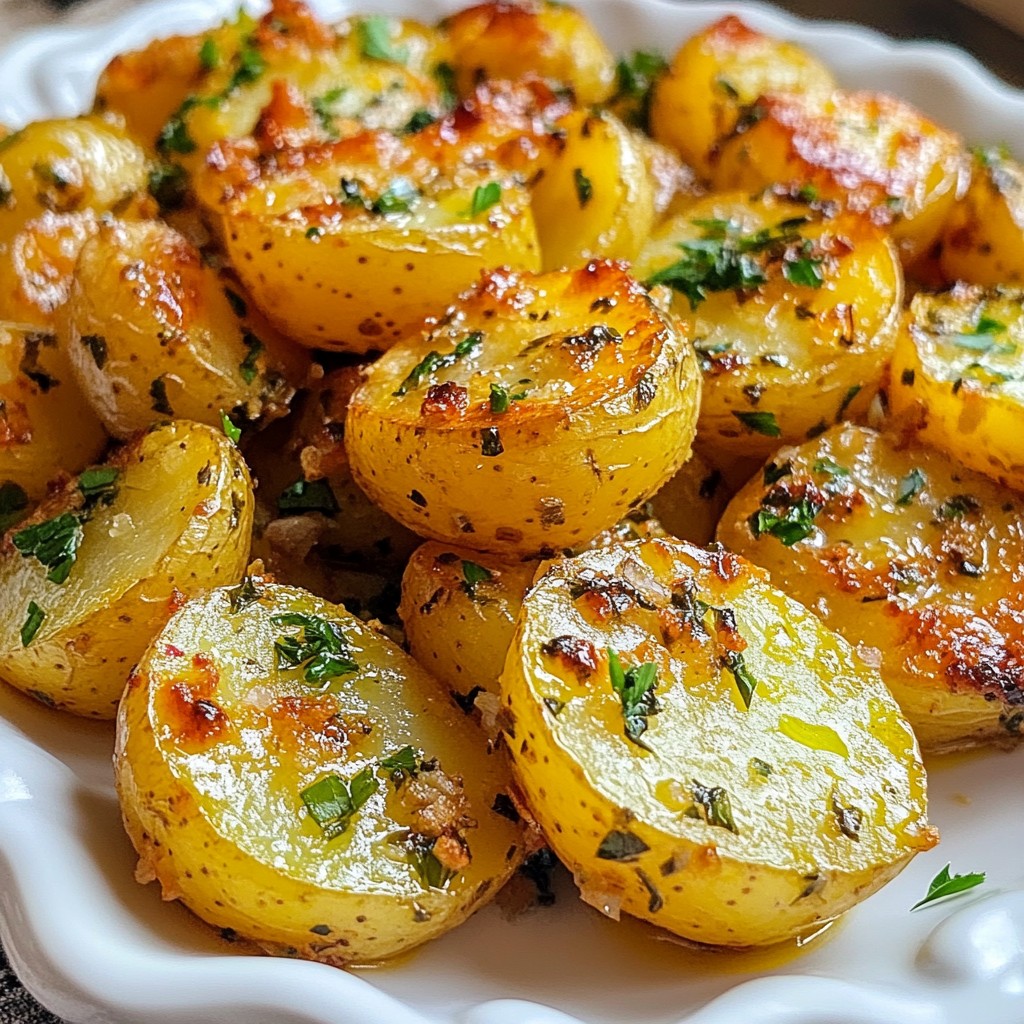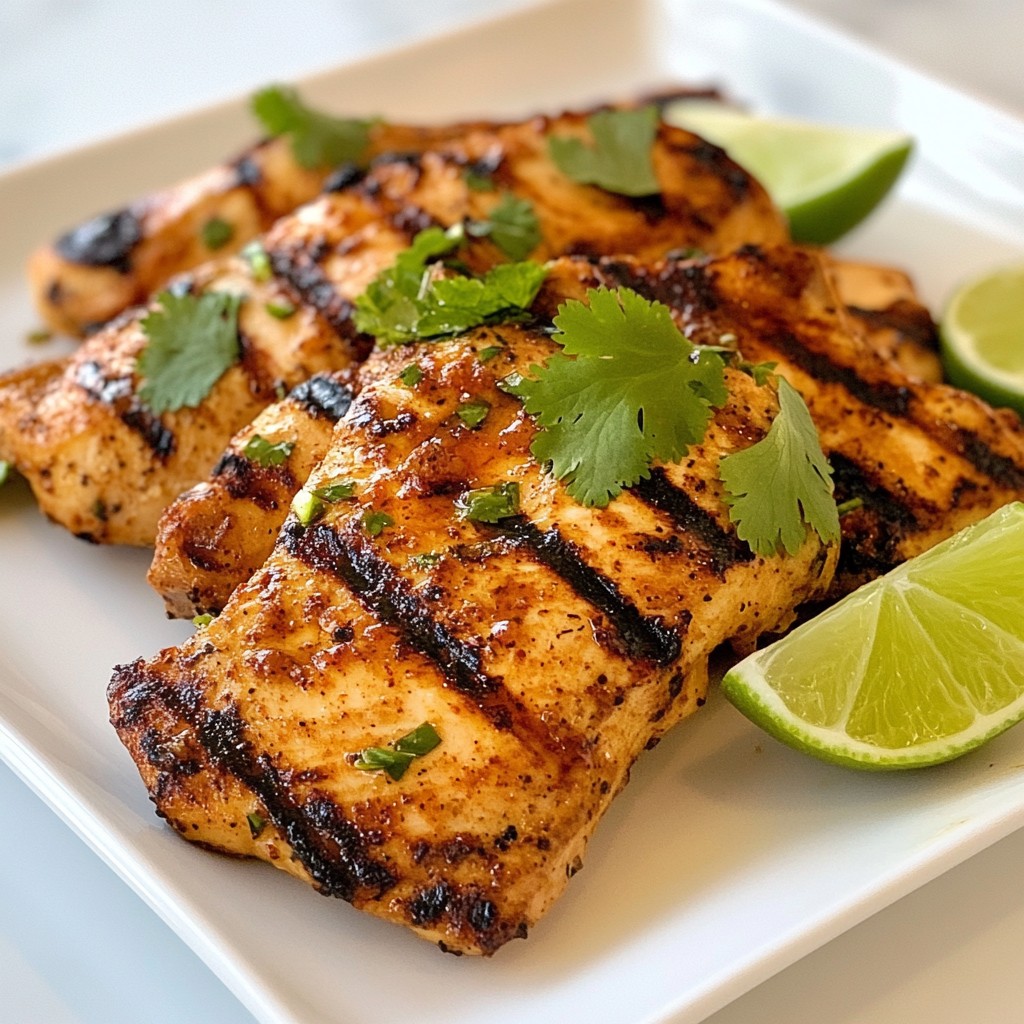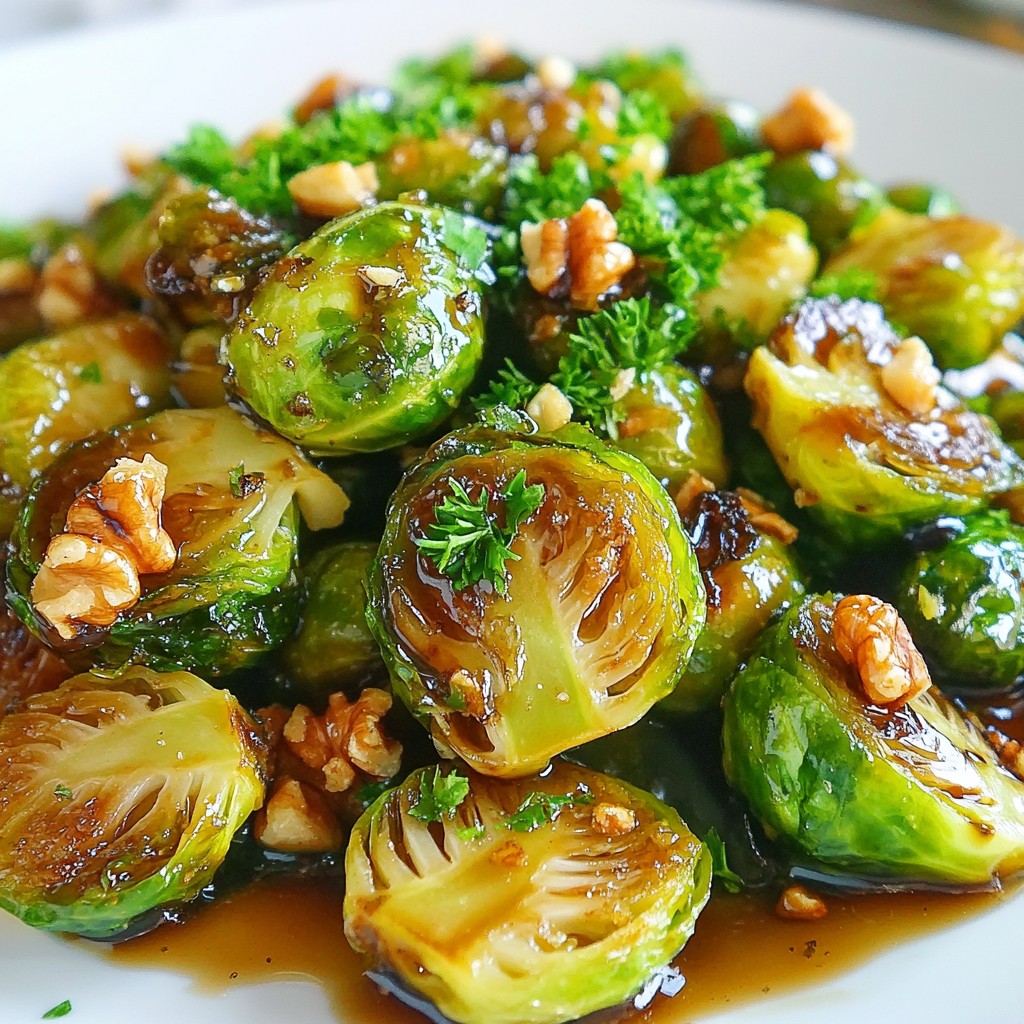If you want a dish that’s quick, tasty, and packed with flavor, you’ve found it! This Garlic Herb Roasted Salmon recipe brings together garlic, fresh herbs, and the zesty kick of lemon. You’ll create a juicy and flaky salmon in just over 30 minutes. I’ll guide you step-by-step, making it easy for anyone to join in. So, grab your salmon fillets and let’s dive into this delicious, simple recipe!
Ingredients
– 4 salmon fillets (approximately 6 oz each)
– 4 tablespoons extra virgin olive oil
– 4 garlic cloves, finely minced
– 2 tablespoons fresh parsley, roughly chopped
– 1 tablespoon fresh dill, finely chopped
– 1 tablespoon fresh thyme leaves
– Juice of 1 large lemon (about 2 tablespoons)
– Salt and freshly ground black pepper, to taste
– Lemon slices, for garnish
– Extra fresh herbs, for garnish (optional)
Gather these ingredients to make a tasty Garlic Herb Roasted Salmon. The salmon is the star here, so choose fresh fillets for the best flavor. You will need garlic to add that punch and herbs for freshness. Olive oil not only helps the salmon cook but also gives it a rich taste.
The lemon juice brightens the dish and balances the flavors. Salt and pepper are must-haves for seasoning. You can add lemon slices on top when serving to make it look pretty. Fresh herbs make for a nice garnish and add extra flavor.You can find it in the detailed instructions. With these ingredients, you’ll create a dish that brings joy to your table.
Step-by-Step Instructions
Preparing the Oven and Baking Sheet
– Preheat your oven to 400°F (200°C).
– Line a baking sheet with parchment paper.
Start by getting your oven nice and hot. Preheating helps the salmon cook evenly. The parchment paper makes cleanup easy. You won’t have to scrub the pan later!
Making the Herb Marinade
– Combine olive oil, minced garlic, chopped herbs, and lemon juice.
– Whisk until well blended.
Now, let’s make the herb marinade. In a bowl, mix olive oil, minced garlic, chopped parsley, dill, thyme, and lemon juice. Whisk it all together. You want it to be smooth and mixed well. This mixture gives the salmon its delicious flavor.
Marinating the Salmon
– Arrange salmon fillets skin-side down on the baking sheet.
– Apply the herb marinade generously on each fillet.
– Let marinate at room temperature for 15-20 minutes.
Place salmon fillets on the baking sheet. Make sure the skin side is down. This helps it cook better. Take the herb marinade and pour it over the salmon. Use a spoon or brush to cover each fillet. Let the salmon sit for 15-20 minutes. This step lets the flavors soak in.
Roasting the Salmon
– Place in preheated oven.
– Roast for 12-15 minutes or until flakiness is achieved.
Now, it’s time to roast! Put the baking sheet in the hot oven. Roast the salmon for 12-15 minutes. You want to see it flake easily with a fork when it’s done. Keep an eye on it, so it doesn’t overcook.
Serving the Dish
– Remove from oven and allow salmon to rest for a few minutes.
– Garnish with lemon slices and extra herbs (optional).
Once it’s done, take it out of the oven. Let the salmon rest for a few minutes. This helps keep it juicy. Serve the salmon with lemon slices on top. You can add extra herbs for a pop of color. Enjoy your Garlic Herb Roasted Salmon!
Tips & Tricks
Ensuring Perfectly Cooked Salmon
To check for doneness, use a fork. Gently flake the salmon at the thickest part. If it flakes easily, it’s done. Salmon cooks differently based on thickness. Thinner fillets need less time, while thicker ones take longer. Keep an eye on your fillets to avoid overcooking.
Enhancing Flavor with Marinating
Marinating adds rich flavor to your salmon. I recommend marinating for at least 15-20 minutes. For deeper flavor, marinate overnight in the fridge. This lets the garlic and herbs infuse the salmon. You’ll taste the difference!
Cooking Methods Alternatives
Oven roasting is great, but grilling offers a smoky flavor. You can also broil the salmon for a quicker cook. Broiling cooks the top fast while keeping the inside juicy. Choose the method that fits your time and taste!
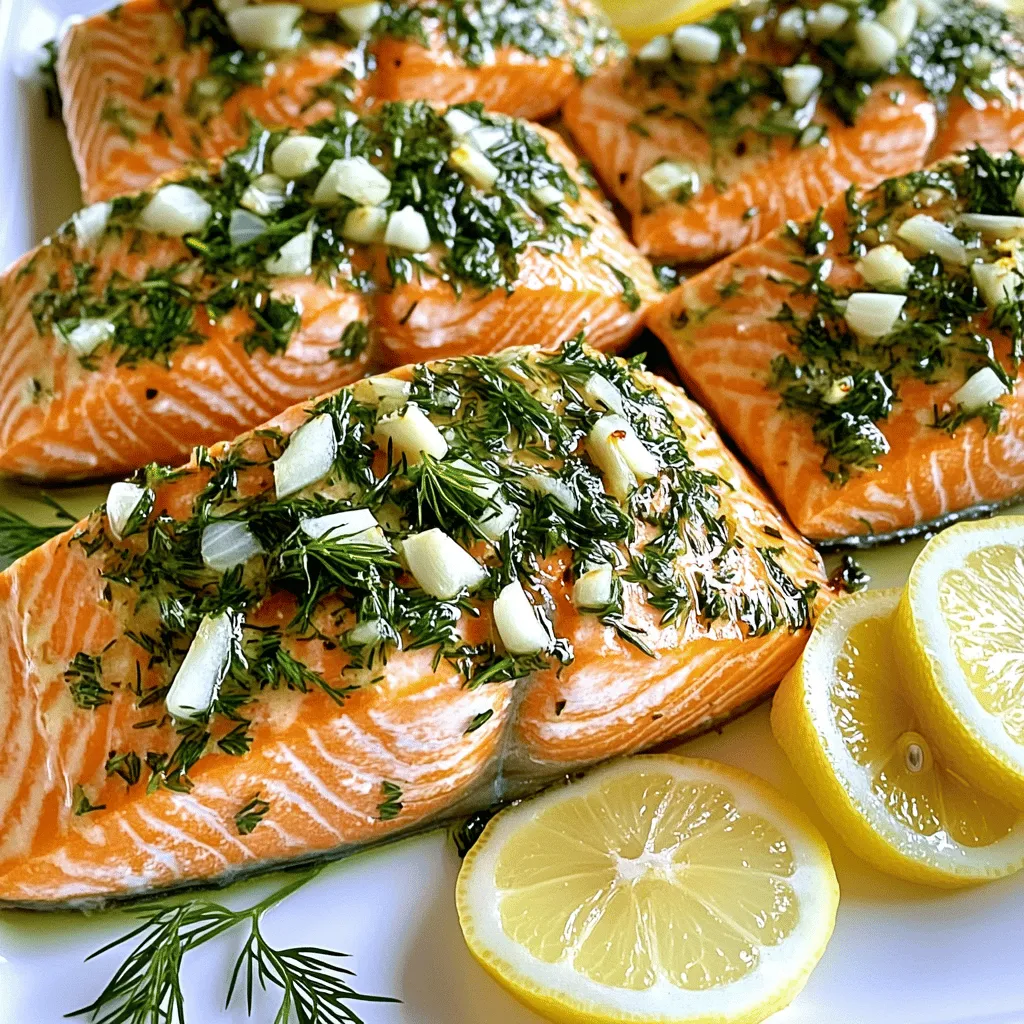
Variations
Different Herbed Marinades
You can switch up the herbs in your marinade. Try using basil or cilantro for a fresh twist. Both herbs add a unique and vibrant taste to the salmon. For those who like a kick, add a pinch of red pepper flakes. This small change can bring a delightful heat to the dish.
Accompanying Side Dishes
Pair your garlic herb roasted salmon with tasty sides. Quinoa or rice pilaf works great as a base. Both options soak up flavors well and add texture. Consider adding a complementary sauce, like a lemon dill sauce, for extra flavor. A simple yogurt sauce can also enhance the meal.
Making it a Full Meal
To create a complete meal, think about your sides and starters. A fresh salad with mixed greens can brighten the plate. Roasted asparagus or broccoli makes a great veggie side. For dessert, consider something light like sorbet or fruit salad. This way, you balance the meal with a sweet note at the end.
Storage Info
Proper Refrigeration
After you cook your garlic herb roasted salmon, let it cool down. Place any leftovers in a container. Use a tight-sealing container to keep it fresh. You can also wrap the salmon tightly in plastic wrap. Store it in the fridge for up to three days. If you want to enjoy it later, freezing is a great option.
Freezing Guidelines
To freeze salmon fillets, first cool them completely. Place the fillets in a freezer-safe bag. Remove as much air as you can before sealing. Label the bag with the date. This helps you track how long it has been frozen. You can store salmon in the freezer for up to three months. When you’re ready to cook, take it out and thaw it. Always thaw salmon in the fridge overnight for the best texture.
Reheating Tips
When you reheat salmon, you want to keep it moist. The best way is to use the oven. Preheat your oven to 275°F (135°C). Place the salmon on a baking sheet. Cover it loosely with foil. Heat for about 15 to 20 minutes, or until warm. You can also reheat it in a pan on low heat. This keeps it from drying out. Aim to reach an internal temperature of 125°F (52°C) for warm salmon without losing flavor.
FAQs
Can I use frozen salmon for this recipe?
Yes, you can use frozen salmon. Just make sure to thaw it first. Place the salmon in the fridge overnight or submerge it in cold water for faster thawing. Adjust the cooking time slightly. Frozen salmon may need an extra 2 to 4 minutes in the oven. Check for doneness to ensure it is fully cooked.
How do I know when the salmon is done?
Look for the salmon to be opaque and flaky. You can use a fork to test it. When the fish flakes easily, it’s ready. The internal temperature should reach 145°F (63°C). If you want a more tender texture, you can take it out a minute or two earlier.
What can I substitute for fresh herbs?
If you don’t have fresh herbs, use dried ones. Use one-third of the amount of dried herbs as you would fresh. For example, if the recipe calls for 1 tablespoon of fresh parsley, use 1 teaspoon of dried parsley. This keeps the flavor strong without overpowering the dish.
Can I include additional vegetables in the dish?
Absolutely! Roasting vegetables adds color and taste. Try adding asparagus, bell peppers, or cherry tomatoes. Cut them to similar sizes for even cooking. Toss them in olive oil and season with salt and pepper. Place them on the baking sheet with the salmon for a complete meal.
This blog post covered a simple and tasty salmon recipe. You learned about the key ingredients, the easy steps to prepare the dish, and helpful tips for cooking perfect salmon. Consider trying different herbs or side dishes to make it your own. Remember, marinating the salmon enhances its flavor. Proper storage keeps your leftovers fresh for later. With these insights, you can create a delicious meal that impresses. Enjoy your cooking journey and make this roasted salmon recipe a new favorite!
